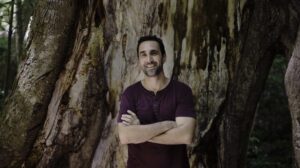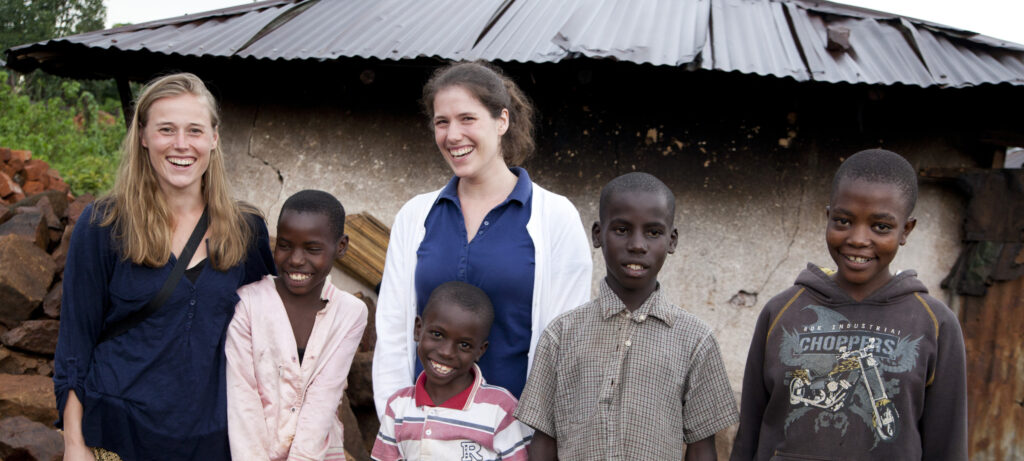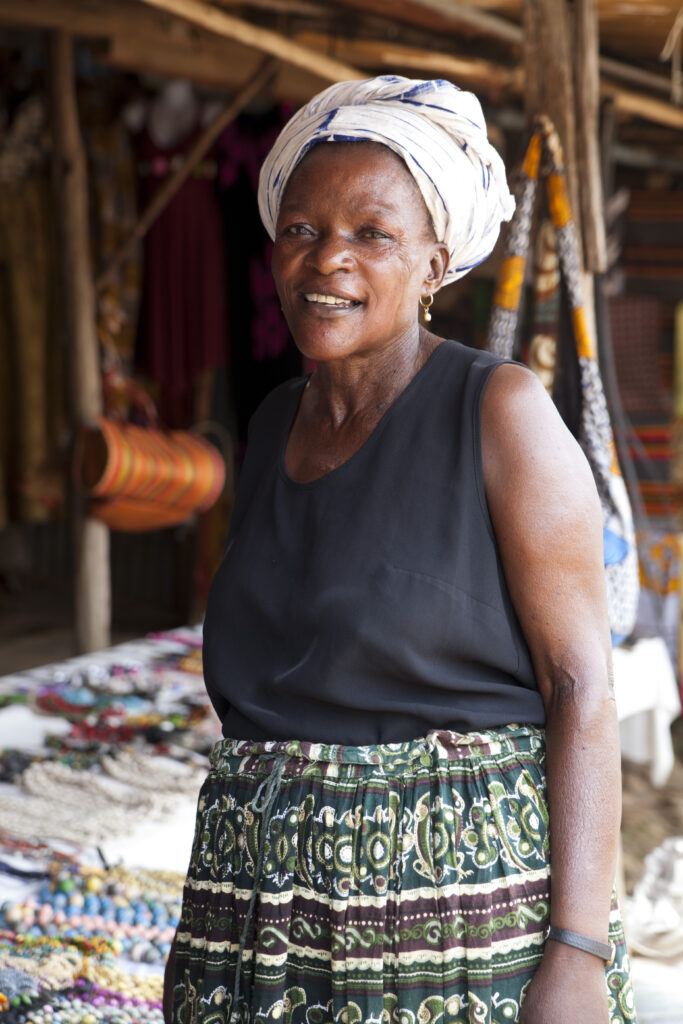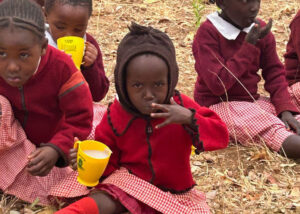
Masaya Co — Sustainable Furniture from Seed to Seat
MasayaCo is a sustainable furniture company on a mission to combat climate change through reforestation & sustainable design.
MOOD OF LIVING
Ajiri Tea, employing women and educating orphans, was founded by Kate and Sara Holby. The two sisters started the company in 2009 at different points in life. Kate, 18 at the time, was still a student at St. Lawrence University while Sara, then 21, had recently graduated from Bowdoin College and started working with a Kenyan NGO. The global recession of the late 2000s, however, united both sisters on the same path: setting out to develop long-term, sustainable, community-oriented change through their new company and foundation, Ajiri Tea.
Kate and Sara decided to challenge poverty systematically by creating opportunities on multiple levels. Ajiri Tea sells cooperative-sourced Kenyan tea packaged in handmade, worker-designed boxes, and donates 100% of their profits to orphan education in Kenya. Theirs is a self-sustaining cycle of change: in funding education, Ajiri Tea encourages future growth – a process furthered by their support of both the indigenous tea industry and small-scale female workers, who also reinvest in their communities.
Today, Ajiri Tea employs over 60 women in western Kenya to make their beautiful labels, each handcrafted with natural and recycled materials. There are also three Ajiri Foundation students in university. As Kate says with evident pride, “Most recently, Fanisha, an Ajiri-sponsored student, graduated from high school with impressive marks and is off to study medicine.” Ajiri Tea’s award-winning tea and coffee can be found in coffee shops and grocery stores across the world.
Mood of Living: What is your mission statement?
Kate Holby: We are a for-purpose company that sources tea from Kenya. We employ women to make our packaging and send 100% of our profits back to pay school fees for orphans, all while presenting the customer with a solid, award-winning product.
MoL: Could you give us a brief history of Ajiri Tea?
KH: We started Ajiri Tea in 2009. Sara had volunteered for an NGO in Kenya that was handing out food and drugs to people with HIV/AIDS. When the global financial crisis hit in 2008, the NGO, which had been funded by foreign donors, lost its funding. The food and medicine that people had come to rely on disappeared almost overnight. So we started to think about systems of handouts and aid and the vulnerability and sustainability of those systems. We started to think of a product that could employ rather than just give. You know that expression, “give a man a fish, it will feed him for a day. Teach a man to fish, it will feed him for life.” But what if there aren’t any fish to be caught in the first place? We needed to create, in essence, the fish. And we didn’t want to stock the pond of fish for men; we wanted to create an opportunity for women. The word “ajiri” means “to employ” in Swahili. And the opportunity we thought of was to employ women to make packaging for a product. We now employ over 60 women to hand make the labels for our tea boxes using dried banana bark from banana trees. The older women, who don’t quite have the same dexterity or eyesight, make the twine using banana bark and beads using recycled magazines. In the nearly six years we have been working with these women, they have used their earnings to rent land, buy livestock, build new houses, and, most important, send their own children—both boys and girls—to school.

MoL: How have your ideas and processes changed as Ajiri Tea has grown?
KH: Perhaps we are aging in reverse here. As we have grown we have become more idealistic and more energized. We are currently increasing the number of women working, increasing the number of students sponsored in school, and expanding our product line to include foodservice. As we grow as a company, we realize the enormous potential for our community to grow with us. The women’s groups who make the labels are starting to invest in micro-savings programs. The children we sponsor have started a peer-mentoring program. And most important, our customers have gotten on board. Our customers not only believe in our product, but they also believe in our mission. This is what tea is all about—bringing people together.
MoL: What are the core values behind Ajiri Tea that make you unique?’
KH: When you look at a grocery store shelf you will see lots of words to help you describe what you, the consumer, are getting. Non-GMO, Organic, All-Natural. But there are fewer words to describe how that product impacts others. Here at Ajiri Tea we are working beyond these neatly packaged words, we are working with real people.

MoL: Highlight some of Ajiri Tea’s accomplishments thus far:
KH: Though it might not sound quite big, one of our biggest accomplishments has been helping all of the women open bank accounts. Many of the women were born in their small villages and have never left. Thus, many women did not have the national identification number required to open a bank account. Two years later, all of our women now have bank accounts that have helped keep their money secure and have helped them to save. Our perhaps greatest accomplishments are less tangible than the number of women we employ or the number of students we send to school. Seeing an Ajiri-sponsored student excel at a math test does not seem like the biggest achievement. But when that child’s parents have recently died and their home life is challenging, then acing a math test with the help of our Ajiri Foundation mentors is the biggest accomplishment for that month. Building a child’s confidence and self-esteem takes time and definitely translates to academic performance. Another subtle accomplishment is the redefining of women’s roles within their small community. All of the women’s groups are led by women. Women are making the money, investing the money, and, ultimately, investing in their communities. It is quite a powerful picture for girls and young women in the community to see their mothers and neighbors as leaders. Most important, the women are now financially able to invest both in their sons’ and daughters’ education.
MoL: In regards to your products, where is your tea sourced?
KH: Our tea is sourced from a cooperative of small-scale farmers called Nyansiongo Tea Factory [a Rainforest Alliance Certified cooperative]. The cooperative is made up of about 12,000 farmers who own, on average, a quarter acre to two acres of land. All of the tea is handpicked and hand sorted.
MoL: Please describe the production process behind your tea:
KH: Tea has an interesting history in Kenya. The British first introduced tea in Kenya at the turn of the century. Indigenous Kenyans were not allowed to grow tea until right before independence. After independence in 1964, small-scale tea farming took off. We are buying tea from this legacy of small-scale farming introduced around independence. The tea is handpicked (always two leaves and a bud!) and brought to a local tea-buying center where it is weighed and sorted. The tea is then brought to the cooperative where it is processed.
MoL: Label creation is the other half of your business model. What is the story behind your packaging?
KH: We wanted to employ women, and we thought that packaging for a product would be the perfect medium. The women make labels using dried bark from banana trees—a free material. The paper that the banana bark designs are glued upon is also handmade. The paper is made using a mixture of water hyacinth, an invasive species on Lake Victoria, and recycled office paper. Hurrah for recycling!
MoL: Could you tell us a bit more about the pictures depicted on the labels?
KH: Sara and I were in a market in Kenya and bought some greeting cards. We thought a modified version of these greeting cards would make for unique packaging. Most of the inspiration for the designs comes from activities in daily life, although the elephants, lions, and giraffes you see pictured are definitely not part of daily life there. Last year we received a shipment of labels with giant birds on them. When we asked where the birds were coming from, the women told us that they know the American people love the American eagle. The Kenyan women design all of the labels—we never know what we are getting!
MoL: You donate 100% of your profits. Where do those profits go, specifically?
KH: Our profits go to our connected 501(c)3 Ajiri Foundation. Since all overhead (salaries, transport, etc.) is covered by the Ajiri Tea Company, 100% of profits go directly to the students. The Ajiri Foundation pays for books, uniforms, school fees, mattresses, sanitary napkins, etc. Basically, we are paying for anything and everything a student needs to get through the school year.
MoL: What were some of the challenges Ajiri Tea encountered in the beginning?
KH: I’d say the biggest challenge was being taken seriously as young woman trying to start a business both in Kenya and here in the United States. Gender discrimination certainly knows no boundaries. This was especially challenging in Kenya when we were trying to source our tea. It all came down to one tea factory manager, the only female manager in Kenya at the time, who took our ambitions seriously and guided us through the tea-buying process. She literally opened the door for us and took the time to explain the entire process of tea production.
MoL: Six years in, what obstacles does Ajiri Tea face now?
KH: In Kisii, Kenya, they say “What the elders can’t see while seated, the young can’t see while standing on the top of the tallest mountain.” As a young company, and as a U.S. company operating in Kenya, there is a lot we can’t see, even from the tallest mountain. But we are learning, along with the women’s groups and students. And when business is hectic, and we need a bit of perspective, we sit and share a pot of tea.
MoL: When did Ajiri Tea seem truly established, as though it would work?
KH: When we hit the 5-year mark, we started to realize that this was working. The tea was selling, the women were still employed, and our sponsored students were graduating from high school.
MoL: Describe a high point in Ajiri Tea’s development:
KH: One of our first high points was winning multiple awards for our Black Tea at the North American Tea Championship. Having a great product, along with a great mission, helps sell. Another early high point was seeing one of the women from the group use her earnings to buy a cow. That was when we really thought that this model of employment is working and can lead to more sustainable forms of investment.
MoL: What is the future vision for Ajiri Tea?
KH: We are set to launch a food service line in September! The more tea we sell, the more women we can employ, and the more students we can send to school!
MoL: How is Ajiri Tea today different from your expectations of the company when you first began?
KH: Ajiri Tea has surpassed our expectations. We never thought that the company could turn into such a community. Our students, all of whom are orphans, refer to themselves as part of the “Ajiri Family.” And in truth, the women and the students all feel like an extended family. We never imagined forming these deep and true connections and friendships across the world.
MoL: What is something you know now that you wish you knew before starting Ajiri Tea?
KH: I wish we knew how readily people are willing to give advice—if you ask. And it is all about the asking. People who have started companies, sold companies, people who are in the tea world, the food world, or the NGO world are generously willing to share their knowledge. We couldn’t have gotten where we are without their help.
MoL: What advice can you give anyone looking for some way to make a difference or feeling disconnected from change?
KH: You don’t need to start a company to make change. From our perspective, being a conscious consumer can inspire change. Voting with your spare change can inspire change. Buying ethically produced chocolate might seem like a small way to inspire a movement. But that business model is supported by people like you. Every dollar goes farther than you can imagine.
MoL: Where do you personally look for inspiration or go for peace of mind?
KH: A tea field is a great place for peace of mind. You know, it takes more than one leaf to make a good cup of tea. We have to remind ourselves that we are not at this alone. We have a tremendous support system and the entire “Ajiri Family” helping us to grow. As our mother always said, “Try it, if doesn’t work out, nothing ventured nothing gained.”
Photography courtesy of Ajiri Tea

MasayaCo is a sustainable furniture company on a mission to combat climate change through reforestation & sustainable design.

Founded in 2013 by Melati and her sister Isabel at 10 and 12 years old, their NGO encourages people to stop using plastic bags.

Leading the Foundation’s investments in Africa, transforming food systems for children that increase access to nutritious foods.